

November 2020 Edition!
AIU News + Essays + Education + Culture + Science + Technology + Art + Design + Body + Mind + Spirit + Environment + Human Rights + Master of Architecture + About AIU


AIU News + Essays + Education + Culture + Science + Technology + Art + Design + Body + Mind + Spirit + Environment + Human Rights + Master of Architecture + About AIU
 September
23, 2020. One
of our graduates,
Harold
Alvarez
Campos, has
been nominated
for the “Maestro de la
Costa” award, in the call for La
Casa del Maestro, organized
by Universidad de la Costa, in
the Colombian Caribbean.
As part of the presentation
of La Casa del Maestro,
the Universidad de la Costa
launched this award that
seeks to recognize the good practices of teachers and
managers of all educational
levels, making visible innovation
projects. The mentioned
award highlights the work of
the teacher as a special contribution
to the transformation
of society.
September
23, 2020. One
of our graduates,
Harold
Alvarez
Campos, has
been nominated
for the “Maestro de la
Costa” award, in the call for La
Casa del Maestro, organized
by Universidad de la Costa, in
the Colombian Caribbean.
As part of the presentation
of La Casa del Maestro,
the Universidad de la Costa
launched this award that
seeks to recognize the good practices of teachers and
managers of all educational
levels, making visible innovation
projects. The mentioned
award highlights the work of
the teacher as a special contribution
to the transformation
of society. September 1, 2020. One of
our graduates, Mara Ondina
López Fonseca, has been
awarded “Teacher of the Year,
Municipality of Trujillo” by the
Secretary of Education (Honduras)
for her laudable work
and innovative initiatives
for the benefit of the educational
quality of her children
to highlight the merits for the
sake of the education of their
municipality.
September 1, 2020. One of
our graduates, Mara Ondina
López Fonseca, has been
awarded “Teacher of the Year,
Municipality of Trujillo” by the
Secretary of Education (Honduras)
for her laudable work
and innovative initiatives
for the benefit of the educational
quality of her children
to highlight the merits for the
sake of the education of their
municipality. Call for Papers
This Conference will be held
2–3 September 2021
at Sorbonne Université,
Paris, France.
We invite proposals for paper
presentations, workshops/
interactive sessions, posters/
exhibits, colloquia, focused
discussions, innovation
showcases, virtual posters, or
virtual lightning talks.
Call for Papers
This Conference will be held
2–3 September 2021
at Sorbonne Université,
Paris, France.
We invite proposals for paper
presentations, workshops/
interactive sessions, posters/
exhibits, colloquia, focused
discussions, innovation
showcases, virtual posters, or
virtual lightning talks. 
| Ailton Neri Lima Júnior Bachelor of Science Agronomic Engineering Angola |
Sergio Ariel Senn Bachelor of Electrical Engineering Industrial Electrical Systems Argentina |
Konkobo Mathurin Paouanessaongo Doctor of Philosophy Public Health Burkina Faso |
Veyeh Eugene Bongaman Master of Science Reproductive Health Cameroon |
Alvaro Puelles Diaz Doctor of Health Science Physiotherapy Chile |
Miguel Angel Arredondo Jeldes Doctor of Education Investigation in Education Chile |
| Jose Miguel Gonzalez Agudelo Master of International Accounting International Acc ounting Colombia |
Jaime Arturo Orejarena Cuartas Doctor of Science Project Management Colombia |
Marianella Puche Forero Bachelor of Education Early Childhood Education Colombia |
María de los Ángeles Morales Villafuerte Bachelor of Science Environmental Engineering Costa Rica |
Fredes Bravo Maura Bachelor of Journalism Journalism Cuba |
Briunny Garabito Segura Bachelor of International Business International Business Dominican Republic |
| Kenia I. Lora Abreu Bachelor of Communications Communications Dominican Republic |
Fredy Francisco Nadal Castellanos Doctor of Science Clinic Psychology Dominican Republic |
Kelly Johanna Cely Valencia Bachelor of Education Latin American Literature Dominican Republic |
Victor Vladimir Guzmán Dickson Doctor of Science Psychology Dominican Republic |
Melenciana Trinidad De Aza Associate of Arts Coaching Dominican Republic |
Yanet Ramona De La Cruz Zarsuela Bachelor of Science Nutrition Dominican Republic |
| Rodolfo Michael Tavárez Fernández Bachelor of Science Telecommunications Dominican Republic |
Francisco Larrea Falcony Master of Project Management Construction Ecuad or |
Milton Fredy Astudillo Bachelor of Science Electronic Engineering Ecuad or |
Ramon Casto Nvono Bibanga Doctor of Legal Studies Legal Studies Equatorial Guinea |
Victor Caxton Odadah Bachelor of Science Business Administration and Management Germany |
Barbara Mallet-Ashitey Master of Arts Public Administration Ghana |
| Marlon Napoleón García Muñoz Bachelor of Science Systems Engineering Guatemala |
Lavile Guilavogui Doctor of Science Project Management Guinea |
Richard Parasram Bachelor of Business Management Management Science and Logistics Guyana |
Marvin Nohel Rodríguez Ayestas Bachelor of Theology Biblical and Systematic Theology Honduras |
Dulce Esperanza Turcios Rodriguez Doctor of Statistics Statistics Honduras |
Diana Carolina Bonilla Turcios Doctor of Statistics Statistics Honduras |
| Mara Ondina López Fonseca Bachelor of Education Education Honduras |
Abdelaziz Ghazal Bachelor of Science Computer Science Iceland |
Giuseppe Claudio Meli Bachelor of Science Political Science Italy |
Denese Antonette Morrison Doctor of Philosophy Project Management Jamaica |
Mary Mabel Mwale Doctor of Science Nutrition Kenya |
Telesia K. Musili Master of Science Bioethics Kenya |
| George Okoth Onyango Master of Science Electrical Engineering Kenya |
Adanielly Clarindo Tavares Bachelor of Science Mining Engineering Moza mbique |
J N M Van Niekerk Bachelor of Science Theology Namibia |
Mauricio Ramón Berrios Téllez Doctor of Business Administration Public Administration Nicaragua |
Nworji Amarachi Thaddeus Master of Science Project Management Nigeria |
Michael Okubay Berhane Bachelor of Science Mining Engineering Norway |
| Jose Martín Herrera Carlin Bachelor of Science Nutrition Peru |
Victor Andres Alvarado Bachelor of Business Business Administration Peru |
Percy Oscar Huertas Niquén Doctor of Science Software Engineering Peru |
Percy Javier Cruz Mejias Bachelor of Science Industrial Hygiene and Safety Engineering Peru |
Percy Javier Cruz Mejias Master of Industrial Safety Hazardous Materials Peru |
Percy Javier Cruz Mejias Doctor of Science Hazardous Materials Peru |
| Joe Jesús Jankarlo Palma Abanto Bachelor of Business Administration Business Administration Peru |
Lymari Negrón Velázquez Doctor of Business Administration Leadership Puerto Rico |
Ruzindaza Casimir Doctor of Arts Theology Rwanda |
Kelvin Thomas Lamb Master of Science Education South Korea |
Tilahun Zaga Kerbaga Bachelor of Science Mechanical Engineering Switzerland |
Yiying Liang Bachelor of Business Management Business Management Thailand |
| Jeremy Kondwani Munthali Bachelor of International Relations Ethics and International Relations Turkey |
Latoya Fraser-Brown Master of Education Special Education Turks and Caicos Islands |
Naluyijja Prossie Mukasa Doctor of Philosophy Business Economics Uganda |
María Isabel Posada Rodríguez Bachelor of Finance Finance Uruguay |
Elize Alphonse Doctor of Philosophy Sociology US A |
Fernando Vallejo Bachelor of Science Electromechanical Engineering US A |
| Divine Sufor Anye Post-Doctorate of Science International Relations and Technology US A |
Mohammed Ahmed Mohammed Hadnah Bachelor of Business Administration Entrepreneurship and Project Management Yemen |
Alfred Chileya Bachelor of Science Mining Engineering Zambia |
John Mwewa Mapulanga Doctor of Philosophy Marketing Zambia |
Mohammed Zahed Uddin Bhuiyan Bachelor of Science Civil Engineering Zambia |
Edmos Admire Shumba Doctor of Business Administration Business Administration Zimbabwe |

 Bernard Agyemang Duah
Bernard Agyemang Duah
 Alexis Makoko Lesesa
Alexis Makoko Lesesa

Abstract
Cybercrime has significantly
increased due to the latest
advancement in technology
and Internet use. More
and more sensitive information
is uploaded online,
which further increases the
cases of cybercrime. As cyber,
criminals have become more
organized. Their activities
continue to pose a significant
challenge to both the government
and the private sector.
The government has therefore
formulated numerous polices
to combat the rising risk of
cybercrime. In addition to
proving a thorough understating
of cybercrime, this study
conducts an in-depth policy
analysis of selected ambiguous
government policies on
preventing cybercrime. This
thesis also discusses why
these policies are ineffective
in combating the increasing risk posed by cybercrime and
provides recommendations on
improving these policies.
Introduction
Cyber security has drawn
significant attention from
the media, experts and the
government in the last decade.
This is due to the essential role
that information and communication
technology plays
in businesses and both private
as well as public organizations.
The internet forms a platform,
which major infrastructures
are, based with the modern advanced
technology that include
transportation, energy, communication,
national securities
among several others. However,
Cybercrime has emerged
to be a persistent challenge to
all the sectors relying on the
Internet that authorities must
strive to address. Studies have
revealed that organizations,
both public and private, have
had to contend with huge
losses arising from instances of
cybercrime attacks. Prasanthi
and Ishwarya (2015) define
cybercrime as any activity
that is computer mediated and
considered illegal targeting the
security of computer systems
and the data they process. Due
to the need of protecting such
important information, the
government has implemented
various policies to combat the
rising threat of cybercrime. Cybercrimes
are of different types
hence requiring a different approach
to address them effectively.
They include financial
crimes where criminals target
to get credit card numbers of
their clients using fake websites
and products, marketing
strategies selling illegal drugs
and narcotics online. Email
frauds are also an example
of cybercrime where hackers
target to send unwanted
emails with wrong information
to ruin his/her repetition and
fund transfer fraud (Broadhurst
et al, 2014). In addition,
other cybercrimes include
funds transfer fraud where
hackers divert funds from
original intended accounts of
unsuspecting individuals to
different accounts (Prasanthi
& Ishwarya 2015) despite the
threat posed by cybercrime to
the government, private and
public sectors, ambiguous policies
remain one of the biggest
challenges in combating cyber
crime. Ambiguous policies
make it difficult to enforce laws
and regulations enacted to
combat cyber crime. This study
aimed at identifying ambiguous
government policies and
Introduction
Cyber security has drawn
significant attention from
the media, experts and the
government in the last decade.
This is due to the essential role
that information and communication
technology plays
in businesses and both private
as well as public organizations.
The internet forms a platform,
which major infrastructures
are, based with the modern advanced
technology that include
transportation, energy, communication,
national securities
among several others. However,
Cybercrime has emerged
to be a persistent challenge to
all the sectors relying on the
Internet that authorities must
strive to address. Studies have
revealed that organizations,
both public and private, have
had to contend with huge
losses arising from instances of
cybercrime attacks. Prasanthi
and Ishwarya (2015) define
cybercrime as any activity
that is computer mediated and
considered illegal targeting the
security of computer systems
and the data they process. Due
to the need of protecting such
important information, the
government has implemented
various policies to combat the
rising threat of cybercrime. Cybercrimes
are of different types
hence requiring a different approach
to address them effectively.
They include financial
crimes where criminals target
to get credit card numbers of
their clients using fake websites
and products, marketing
strategies selling illegal drugs
and narcotics online. Email
frauds are also an example
of cybercrime where hackers
target to send unwanted
emails with wrong information
to ruin his/her repetition and
fund transfer fraud (Broadhurst
et al, 2014). In addition,
other cybercrimes include
funds transfer fraud where
hackers divert funds from
original intended accounts of
unsuspecting individuals to
different accounts (Prasanthi
& Ishwarya 2015) despite the
threat posed by cybercrime to
the government, private and
public sectors, ambiguous policies
remain one of the biggest
challenges in combating cyber
crime. Ambiguous policies
make it difficult to enforce laws
and regulations enacted to
combat cyber crime. This study
aimed at identifying ambiguous
government policies and commit cybercrime. In addition,
the restrictions by the
United States constitution in
protecting the interests and
the privacy of the citizens
limits the government efforts
to search and track suspicious
behaviors of potential criminals
without violating their
rights to privacy. According to
Bucci et al (2013), the United
States also faces new forms of
challenges from Russia, China
and Iran in their attempts to
steal valuable information,
data and innovations. Such
threats backed by states are
more sophisticated when
compared to the individual
criminals who have less motivation
and capacity to cause a
substantial threat to the governments’
critical infrastructure.
They therefore require
clear, timely and adequate
policies to deal with such
threats, which the government
does not formulate in time.
Numerous studies have been
conducted with the aim of
analyzing various government
policies to combat the threat
from cybercrime. numerous
research has been conducted
on cybercrime. Broadhurst et
al. (2014) assesses the nature of
the groups that are involved in
cybercrime.
The author notes
that Cyber criminals are organized
in groups and identifying
these groups can help policy
makers to come with effective
policies to reduce the threat
formed by the operations of
such groups. Similarly, understanding
their organization can
also help organizations and
groups to come up with effective
strategies and measure to
combat the rising cybercrime
threats as well. According to
Casey (2011) the emerging
trends in digital technology not
only provides criminals with
an easy work to identify, target
and executive their plans but
also policy makers can use it to
their advantage.
Through specialized training,
policy makers can understand
the possibilities in digital
technologies to unmask the
operations of criminals. This
is essential in helping them
avoid coming up with ambiguous
policies that only address
part of the problem and leave
a huge part unsolved. Cybercrime
is a global issue and
essentially requiring global cooperation
to address the challenge
of cybercrime even more
effectively. Therefore, policies
formed by the government
should first create a platform
through which different states
can corporate and address the
challenge and a group rather
than an individual country.
Cybercrimes covering a global
context will first require laws
and regulations in place that
makes it easy to track any
criminal activity despite of
their geographical location.
However, such laws are different
to promote because of
different ideologies promoted
by different countries and the
competition to out each other
in terms of technology and
innovation. For instance, the
United States is facing a new
threat from the Russia, china
and Iran where most of the
cybercrimes directed towards
the country’s critical infrastructure
originate.
Lack of a common jurisdiction
law on these countries
makes it difficult to formulate
effective policies that
can aid in identifying these
criminals. The government
offers the evidence of digital
trends and takes an investigative
approach to crimes that
amount to the definition of
cybercrime. In Choo (2011), the
author explores the trends of
cybercrime and gives a perspective
on the future research
direction. He explains the
success attained so far and advises
on how future research
needs to be undertaken. Choo
(2011) and McQueen (2006)
analyzes the way various
groups, authorities and businesses
understand cybercrime
and the management practices
employed in combating the
effects of cybercrime.
Another major challenge
facing the department of
homeland security resulting
from cybercrime is illegal
interception of information
as unauthorized people gain
access to sensitive data. This
has in turn created more problems
for homeland security
as they must protect sensitive
information from hackers who
have the capability of destroying
or altering sensitive data
on criminal activities (Poonia
et al, 2011). The department
of homeland security works
with other federal agencies to
combat cybercrime through
initiating investigations on
the activities of cybercrime,
recruiting technical experts to
address the threat of cybercrime,
developing cyber cycler
crime prevention methods
like technologies to address
specific vulnerabilities on
cybercrime. they also work
effectively to responds and
investigate incidents of cybercrime
(DHS,2016).
Another new emerging
form of cybercrime is identity
theft. Identity theft has largely
contributed to online fraud as
criminals use false identifies
to perform online transactions.
Identify thefts has also
worsened the problem of
cyber terrorism and blackmail
making hindering the efforts
to prevent cybercrime (Rotich
et al, 2014). Online businesses
are the biggest contributors of
spam, which is also an emerging
form of cybercrime through
forced advertising. Although
they are not necessary harmful,
spam messages are consuming
much of the user’s bandwidth
increasing unnecessary costs
and time wastage for internet
users (Rotich et al, 2014).
To be continu

We are living in a world
that we could never
imagine. At any point on our
planet, the activities that were
normal for us are operating
in half. Everything is done in
double or triple times than we
were used to. It is for everyone
something we never imagined.
A world with a science and
technology developed in such
a way that it seemed that we
would continue to do everything
in a matter of minutes.
Today we are seeing protests
from all sides. People worldwide
with very mixed feelings;
we are reaching protests and
in many cases violence. What
happened so that our world
became people everywhere
with diminished activities?
There are many who have lost
their jobs. The question that many ask is what was done
wrong so that our world has
become what we live today?
With so much science and
technology, how many things
were done in the wrong way?
From the above, what is
evident is that if the world
population were more aware
of the rights that we have
as human beings, the world
would be different.
We must study.
We have to know the
rights and obligations we
have as human beings.
In each State, how many are
those who continue to learn
in their life. Learning must be
seen as the same way as food.
You may say to yourself: I
don’t have money to pay for
studies. You may not have
money to pay for studies but
you can go to a public library
to find books that can show
you who you are as a human
being. How much meaningless
stationery you read?
In countries where you can
have a vote to elect rulers: Are
you interested in knowing
who you are going to vote for?
You are interested in knowing
what those people will do if
they are rule.
You can say: I don’t have
time to go to school because
I have to work. Ask in your
work to those who have been
able to study: what can you
read to know in which society you are living and what country
we need.
It is a pity that most of the
time what many inhabitants of
this planet investigate is: what
are the political parties giving
away. Everywhere is the
discontent of the inhabitants
of this planet. The question is:
the rulers did not fall from the
sky. In most countries there
were elections.
What we have now as a
health problem, the problem
that the pandemic has
generated does not originate
in these days. It has its origin
in many years ago when as
citizens we do not occupy ourselves
in learning, in studying.
Life became very easy, for
many, to continue calmly as
long as they had their basic
needs satisfied. We were not
concerned if some of them
lacked elements of well-being.
Today the global problem
has to have a global solution.
Yes, there are those who do
science, they must seek the
solution to this maremagnum.
This maremagnum has its origin
in what we have not done
as a society in every corner of
the planet.
Everything is always in
studying.
The United Nations Educational,
Scientific and Cultural
Organization (UNESCO) has a
proposal for 2030 with the requirements
for a better life for all: the Sustainable Development
Goals (SDG). You have to
read to know what we have to
do. Life is for live and to live it
well. We must know where we
are going or rather where they
want to take us.
The historical time that we
are living, will teach us that
we must always study. Studying
is no knowing formulas
and formulas; studying is:
knowing why things are.
If you can’t go to a school,
you can look for someone to
guide you in the information
you need to have. If you have
already finished a university
degree, do not stop there
because science continues
to advance and you will find
yourself in the world of obsolete
science. Every day you
have to learn something.
If you finished a degree,
look for a way to continue
and if you cannot continue
institutionally, you already
have the knowledge to look for
the bibliography of what is still
being done in your area on
your own. In your work, seek
to learn so that you do it better
every day.
Work ceased to be the
Greco-Roman tradition that it
is punishment. Work is your
personal development. Live it
to grow as a human being.
Study, learn something
every day. Teach something to
a human being every day.
Instead of looking for all the
misinformation of the global
computer network, the internet,
look for the much formative
information that you can
find; there are information
that correspond to knowledge.
How much scientific
information can you find!
Universities publish, scientists
publish, research Papers that
are classical, can be found on
the web. Don’t study to pass
the degrees, study to know.
If you know, be sure that you
will pass. We have to stop
seeing learning, studying, as a
punishment.
Having the blessing of a brain, let’s use it for the best of
benefits: to know what world
we live in and what world we
have to build. The world of
which we are all dissatisfied
at this time, we have allowed,
some more than others, to be
formed in this way.
Today we have to give a
lot of importance to study, to
learn because the situation
would have been different.
The experience that the
pandemic will leave us will
last for a long time:
We all have to study.
We all have to learn
every day and for lifelong.
BIBLIOGRAPHY. UNESCO - EDUCATION 2030. http://unesdoc.
unesco.org/images/0024/002472/247234s.pdf | UNESCO - SUSTAINABLE
DEVELOPMENT. https://es.unesco.org/sdgs.
 Karen Blacher, a special-ed teacher
from New York, wrote a Facebook
post at the end of September.
She talked about her classroom that
she designed her for neurotypical
students (not in the autism spectrum)
to resemble one that caters to special
education. ... Her post got a lot of appreciation
for practising inclusion and
was shared by thousands of educators.
Her post reads, “All of my students
are neurotypical, but my classroom
looks very much like a special education
classroom. I teach mindfulness
and emotional literacy. I provide
fidgets and sensory toys. I have
a calm corner and use it to teach
self-regulation.”
Karen has two children of her own
who are autistic and she is familiar with
neurodiversity. She told Good Morning
America that her students remain
successful because they learn “without
the anxiety that tends to be provoked
by traditional behaviour systems like
clip charts and token economies, those
don’t work well for anyone. But I have
never encountered a single human
being, of any age or neurotype, who
doesn’t thrive when treated like an autistic
person. (I mean, of course, treated
the way an autistic person OUGHT
to be treated. With open communication,
adaptive expectations, and
respect for self-advocacy and self-regulation),”
she says. ...
Read full text:
Karen Blacher, a special-ed teacher
from New York, wrote a Facebook
post at the end of September.
She talked about her classroom that
she designed her for neurotypical
students (not in the autism spectrum)
to resemble one that caters to special
education. ... Her post got a lot of appreciation
for practising inclusion and
was shared by thousands of educators.
Her post reads, “All of my students
are neurotypical, but my classroom
looks very much like a special education
classroom. I teach mindfulness
and emotional literacy. I provide
fidgets and sensory toys. I have
a calm corner and use it to teach
self-regulation.”
Karen has two children of her own
who are autistic and she is familiar with
neurodiversity. She told Good Morning
America that her students remain
successful because they learn “without
the anxiety that tends to be provoked
by traditional behaviour systems like
clip charts and token economies, those
don’t work well for anyone. But I have
never encountered a single human
being, of any age or neurotype, who
doesn’t thrive when treated like an autistic
person. (I mean, of course, treated
the way an autistic person OUGHT
to be treated. With open communication,
adaptive expectations, and
respect for self-advocacy and self-regulation),”
she says. ...
Read full text:
 Over 100 teen boys at Collège Nouvelles
Frontières in Canada wore
skirts to school to protest a sexist dress
code. Students joined similar protests
that are sweeping through Quebec to
highlight the arbitrary requirements
imposed on girls –but not boys– and
the inherent anti-LGBTQ rationalization
behind it.
When Zachary Paulin told classmates
he intended to wear a skirt, he
urged them to do so as well. He told
CBC that he thought about 30 students
would join him. Instead, over
100 classmates came to school showing
their legs. “The double standard on
the way society views our women and
men is blatant; if a woman decides to
wear a suit or pants, clothes associated
with masculinity, it’s not a big deal”
he said. “But the moment a man does
anything remotely feminine –whether
it is to put nail polish, makeup, or, in
our case, a skirt– fingers are pointed
and he gets insulted. People will say
that he’s not a ‘real man’ and they
will automatically assume his sexual
orientation. So, by wearing a skirt, we
are united and together against the
sexualization of women and we’re
sending a message against toxic masculinity
which keeps boys from being
who they truly are, without judgment,”
he continued. ... Read full text:
Read full text:
Over 100 teen boys at Collège Nouvelles
Frontières in Canada wore
skirts to school to protest a sexist dress
code. Students joined similar protests
that are sweeping through Quebec to
highlight the arbitrary requirements
imposed on girls –but not boys– and
the inherent anti-LGBTQ rationalization
behind it.
When Zachary Paulin told classmates
he intended to wear a skirt, he
urged them to do so as well. He told
CBC that he thought about 30 students
would join him. Instead, over
100 classmates came to school showing
their legs. “The double standard on
the way society views our women and
men is blatant; if a woman decides to
wear a suit or pants, clothes associated
with masculinity, it’s not a big deal”
he said. “But the moment a man does
anything remotely feminine –whether
it is to put nail polish, makeup, or, in
our case, a skirt– fingers are pointed
and he gets insulted. People will say
that he’s not a ‘real man’ and they
will automatically assume his sexual
orientation. So, by wearing a skirt, we
are united and together against the
sexualization of women and we’re
sending a message against toxic masculinity
which keeps boys from being
who they truly are, without judgment,”
he continued. ... Read full text:
Read full text:
 A new lab study shows that a molecule
found in bee venom can
suppress the growth of particularly
nasty cancer cells.
The study focussed on certain
subtypes of breast cancer, including
triple-negative breast cancer (TNBC),
which is an extremely aggressive condition
with limited treatment options.
TNBC accounts for up to 15 percent
of all breast cancers. In many cases, its
cells produce more of a molecule called
EGFR than seen in normal cells. Previous
attempts to develop treatments that
specifically target this molecule have
not worked, because they would also
negatively affect healthy cells.
Honeybee (Apis mellifera) venom
has shown potential in other medical
therapies ... and has been known to
have anti-tumour properties for some
time now ... But how it works against
tumours at a molecular level isn’t fully
understood. Now, we’ve taken a huge
step closer to the answer.
Bees actually use melittin —the
molecule that makes up half of their
venom and makes their stings really
hecking painful— to fight off their own
pathogens. The insects produce this
peptide not just in their venom, but in
other tissues too, where it’s expressed
in response to infections. ...
A new lab study shows that a molecule
found in bee venom can
suppress the growth of particularly
nasty cancer cells.
The study focussed on certain
subtypes of breast cancer, including
triple-negative breast cancer (TNBC),
which is an extremely aggressive condition
with limited treatment options.
TNBC accounts for up to 15 percent
of all breast cancers. In many cases, its
cells produce more of a molecule called
EGFR than seen in normal cells. Previous
attempts to develop treatments that
specifically target this molecule have
not worked, because they would also
negatively affect healthy cells.
Honeybee (Apis mellifera) venom
has shown potential in other medical
therapies ... and has been known to
have anti-tumour properties for some
time now ... But how it works against
tumours at a molecular level isn’t fully
understood. Now, we’ve taken a huge
step closer to the answer.
Bees actually use melittin —the
molecule that makes up half of their
venom and makes their stings really
hecking painful— to fight off their own
pathogens. The insects produce this
peptide not just in their venom, but in
other tissues too, where it’s expressed
in response to infections. ...
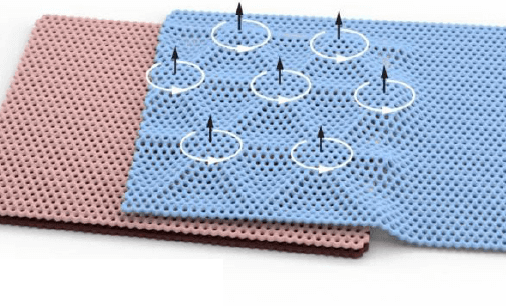 Graphene, one of the world’s
strongest materials, isn’t normally
magnetic. But when stacked and
twisted, graphene develops a rare form
of magnetism, new research finds. The
magnetic field isn’t created by the usual
spin of electrons within the individual
graphene layers, but instead arises from
the collective swirling of electrons in all
of the three-layers of the stacked graphene
structure, researchers reported
Oct. 12 in the journal Nature Physics.
Graphene is a material made of a single
layer (or monolayer) of carbon atoms
arranged in a honeycomb pattern. It’s
incredibly light and strong (though it is
vulnerable to cracking). It also conducts
electricity, making it exciting for use in
electronics and sensors.
“We wondered what would happen
if we combined graphene monolayers
and bilayers into a twisted three-layer
system,” Cory Dean, a physicist at
Columbia University in New York and
one of the senior authors on the new
paper, said in a statement. “We found
that varying the number of graphene
layers endows these composite materials
with some exciting new properties
that had not been seen before.”
Dean and his colleagues stacked two
layers of graphene and then added a ...
Graphene, one of the world’s
strongest materials, isn’t normally
magnetic. But when stacked and
twisted, graphene develops a rare form
of magnetism, new research finds. The
magnetic field isn’t created by the usual
spin of electrons within the individual
graphene layers, but instead arises from
the collective swirling of electrons in all
of the three-layers of the stacked graphene
structure, researchers reported
Oct. 12 in the journal Nature Physics.
Graphene is a material made of a single
layer (or monolayer) of carbon atoms
arranged in a honeycomb pattern. It’s
incredibly light and strong (though it is
vulnerable to cracking). It also conducts
electricity, making it exciting for use in
electronics and sensors.
“We wondered what would happen
if we combined graphene monolayers
and bilayers into a twisted three-layer
system,” Cory Dean, a physicist at
Columbia University in New York and
one of the senior authors on the new
paper, said in a statement. “We found
that varying the number of graphene
layers endows these composite materials
with some exciting new properties
that had not been seen before.”
Dean and his colleagues stacked two
layers of graphene and then added a ...
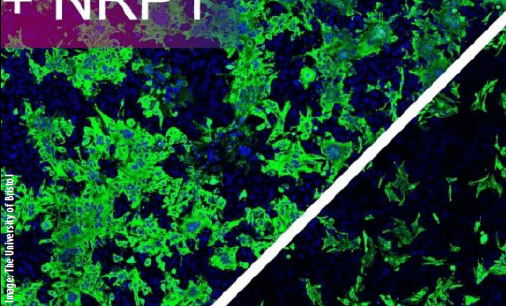 In a major breakthrough an international
team of scientists, led by the
University of Bristol, has potentially
identified what makes SARS-CoV-2 highly
infectious and able to spread rapidly in
human cells. The findings, published in
Science today [20 October] describe how
the virus’s ability to infect human cells
can be reduced by inhibitors that block
a newly discovered interaction between
virus and host, demonstrating a potential
anti-viral treatment.
Unlike other coronavirus, which
cause common colds and mild respiratory
symptoms, SARS-CoV-2, the causative
agent of COVID-19, is highly infective
and transmissive. Until now, major
questions have remained unanswered
as to why SARS-CoV-2 readily infects
organs outside of the respiratory system,
such as the brain and heart.
To infect humans, SARS-CoV-2
must first attach to the surface of human
cells that line the respiratory or
intestinal tracts. Once attached, the
virus invades the cell then replicates
multiple copies of itself. The replicated
viruses are then released leading to
the transmission of SARS-CoV-2.
The virus’s process of attachment
to and invasion of human cells is
performed by a viral protein, called
the ‘Spike’ protein. Understanding the
process by which the ‘Spike’ protein
recognises human cells is central to ...
Read full text:
In a major breakthrough an international
team of scientists, led by the
University of Bristol, has potentially
identified what makes SARS-CoV-2 highly
infectious and able to spread rapidly in
human cells. The findings, published in
Science today [20 October] describe how
the virus’s ability to infect human cells
can be reduced by inhibitors that block
a newly discovered interaction between
virus and host, demonstrating a potential
anti-viral treatment.
Unlike other coronavirus, which
cause common colds and mild respiratory
symptoms, SARS-CoV-2, the causative
agent of COVID-19, is highly infective
and transmissive. Until now, major
questions have remained unanswered
as to why SARS-CoV-2 readily infects
organs outside of the respiratory system,
such as the brain and heart.
To infect humans, SARS-CoV-2
must first attach to the surface of human
cells that line the respiratory or
intestinal tracts. Once attached, the
virus invades the cell then replicates
multiple copies of itself. The replicated
viruses are then released leading to
the transmission of SARS-CoV-2.
The virus’s process of attachment
to and invasion of human cells is
performed by a viral protein, called
the ‘Spike’ protein. Understanding the
process by which the ‘Spike’ protein
recognises human cells is central to ...
Read full text:
 We can’t say with any certainty
what the future of COVID-19 is.
But based on our experience with other
infections, there is little reason to believe
that the coronavirus SARS-CoV-2
will go away any time soon, even when
vaccines become available. A more realistic
scenario is that it will be added to
the (large and growing) family of infectious
diseases that are what is known as
“endemic” in the human population.
With the worldwide spread of the disease
increasing again, it seems unlikely
that the currently available measures
can do more than bring that spread
under control –except in countries that
can effectively isolate themselves from
the outside world. The fact that the vast
majority of people are still susceptible
to some degree means that there is sufficient
fuel for the fire to keep burning
for quite some time.
This will be the case even if specific
locations reach what is known as
population (or herd) immunity (and it’s
not clear how likely this is to happen).
When a sufficient number of people
become immune to a disease, either
through vaccination or natural infection,
its spread starts to slow down
and the number of cases gradually
decreases. ...
We can’t say with any certainty
what the future of COVID-19 is.
But based on our experience with other
infections, there is little reason to believe
that the coronavirus SARS-CoV-2
will go away any time soon, even when
vaccines become available. A more realistic
scenario is that it will be added to
the (large and growing) family of infectious
diseases that are what is known as
“endemic” in the human population.
With the worldwide spread of the disease
increasing again, it seems unlikely
that the currently available measures
can do more than bring that spread
under control –except in countries that
can effectively isolate themselves from
the outside world. The fact that the vast
majority of people are still susceptible
to some degree means that there is sufficient
fuel for the fire to keep burning
for quite some time.
This will be the case even if specific
locations reach what is known as
population (or herd) immunity (and it’s
not clear how likely this is to happen).
When a sufficient number of people
become immune to a disease, either
through vaccination or natural infection,
its spread starts to slow down
and the number of cases gradually
decreases. ...
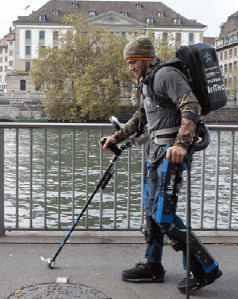 The Florida Institute for Human
& Machine Cognition (IHMC) is
developing a new research prototype
called Quix that will enable people
with paralysis to walk. It is a powered
exoskeleton that provides people with
lower limb paralysis increased mobility
and independence. It also has the
potential to eventually replace the
wheelchair. This is the fourth exoskeleton
prototype developed from the
ground up by researchers and engineers
at IHMC.
Our research is funded in part by
generous sponsors. By becoming a
sponsor of the Quix team, you are
giving us the competitive edge to be
better prepared for world-class mobility
events ...
The Florida Institute for Human
& Machine Cognition (IHMC) is
developing a new research prototype
called Quix that will enable people
with paralysis to walk. It is a powered
exoskeleton that provides people with
lower limb paralysis increased mobility
and independence. It also has the
potential to eventually replace the
wheelchair. This is the fourth exoskeleton
prototype developed from the
ground up by researchers and engineers
at IHMC.
Our research is funded in part by
generous sponsors. By becoming a
sponsor of the Quix team, you are
giving us the competitive edge to be
better prepared for world-class mobility
events ...
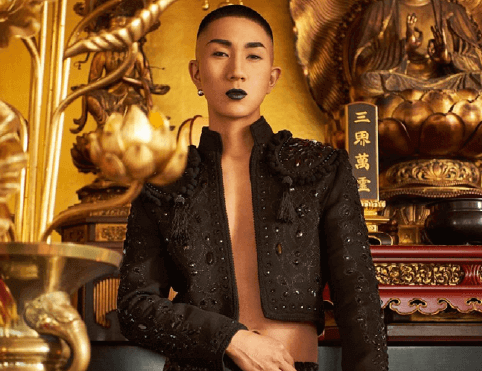 Kodo Nishimura grew up in Tokyo
but moved to New York at age 18
to study art at Parsons. After returning
to Japan to complete his training as a
monk he then chose to travel again to
Los Angeles where he furthered his
classical training in makeup. Today,
Nishimura, who identifies as nonbinary,
divides his time between his
two passions: makeup artistry and the
Buddhist monastery. ...
Nishimura grew up in a serene
buddhist temple and the monk profession
is a family business, which
created additional anxiety, particularly
around Nishimura’s penchant
for makeup and the various gender
roles traditionally held. However,
Nishimura writes how a senior monk
offered the following words of advice:
“appearances and ritual manners are
not the essence of teachings.”
The photographs of him here were
all taken by Masaki Sato for a recent
piece in Tokyo Weekender. ...
Kodo Nishimura grew up in Tokyo
but moved to New York at age 18
to study art at Parsons. After returning
to Japan to complete his training as a
monk he then chose to travel again to
Los Angeles where he furthered his
classical training in makeup. Today,
Nishimura, who identifies as nonbinary,
divides his time between his
two passions: makeup artistry and the
Buddhist monastery. ...
Nishimura grew up in a serene
buddhist temple and the monk profession
is a family business, which
created additional anxiety, particularly
around Nishimura’s penchant
for makeup and the various gender
roles traditionally held. However,
Nishimura writes how a senior monk
offered the following words of advice:
“appearances and ritual manners are
not the essence of teachings.”
The photographs of him here were
all taken by Masaki Sato for a recent
piece in Tokyo Weekender. ...
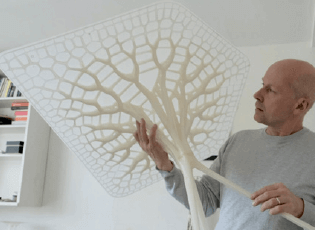 “Biomimicry is innovation
inspired by nature,” explained
Pawlyn in the video, which was filmed
by Dezeen at the founder of biomimicry-
focussed practice Exploration
Architecture’s home studio in London.
Many of Exploration Architecture’s
projects draw on examples found in
nature, looking at organisms that have
developed precise structures that use
material sparingly through millions of
years of evolution. ...
“In biology, you often find very complex
structures that achieve amazing
resource efficiency by putting the
material exactly where it needs to be,”
said Pawlyn.
“With computational design and
3D-printing, it’s getting much easier
to mimic that level of complexity and
efficiency.” ...
“Biomimicry is innovation
inspired by nature,” explained
Pawlyn in the video, which was filmed
by Dezeen at the founder of biomimicry-
focussed practice Exploration
Architecture’s home studio in London.
Many of Exploration Architecture’s
projects draw on examples found in
nature, looking at organisms that have
developed precise structures that use
material sparingly through millions of
years of evolution. ...
“In biology, you often find very complex
structures that achieve amazing
resource efficiency by putting the
material exactly where it needs to be,”
said Pawlyn.
“With computational design and
3D-printing, it’s getting much easier
to mimic that level of complexity and
efficiency.” ...
 1 Chest stretch. If you’re stuck at a
desk 24/7, this morning stretch is
a must. “It can help alleviate stress to
your neck and upper back often caused
by frequent sitting throughout the day,”
says Dr. Knauf.
Raise both arms until they’re level
with your shoulders and out from your
body to make a T-shape.
Lean through a door frame with your
hands and arms pushing against the
wall while your body leans forward
through the door, creating a stretch in
the front of your chest.
2 Hip flexors stretch. Another great
stretch is this feel-good option for
your hip flexors. “It helps loosen up the
muscles that are often tightened from
sitting all day,” says Dr. Knauf.
Using a chair or dresser for balance bend one knee and grab the ankle behind
your thigh. Push your hip slightly
forward on that side to feel a stretch in
the front of your hip.
Repeat on the opposite side.
3 Calves stretch. There are many
reasons why this morning stretch
is a good idea. “Restoring calf flexibility
is great for alleviating foot stiffness or
pain —especially if you’re on your feet
all day,” Dr. Knauf says. “It’s also great
if you’re frequently having to wear
shoes with little to no support.”
Place the ball of your foot against a
wall with your heel on the floor. Begin
leaning forward to feel a stretch in the
calf on that side.
Repeat on the opposite leg. ...
1 Chest stretch. If you’re stuck at a
desk 24/7, this morning stretch is
a must. “It can help alleviate stress to
your neck and upper back often caused
by frequent sitting throughout the day,”
says Dr. Knauf.
Raise both arms until they’re level
with your shoulders and out from your
body to make a T-shape.
Lean through a door frame with your
hands and arms pushing against the
wall while your body leans forward
through the door, creating a stretch in
the front of your chest.
2 Hip flexors stretch. Another great
stretch is this feel-good option for
your hip flexors. “It helps loosen up the
muscles that are often tightened from
sitting all day,” says Dr. Knauf.
Using a chair or dresser for balance bend one knee and grab the ankle behind
your thigh. Push your hip slightly
forward on that side to feel a stretch in
the front of your hip.
Repeat on the opposite side.
3 Calves stretch. There are many
reasons why this morning stretch
is a good idea. “Restoring calf flexibility
is great for alleviating foot stiffness or
pain —especially if you’re on your feet
all day,” Dr. Knauf says. “It’s also great
if you’re frequently having to wear
shoes with little to no support.”
Place the ball of your foot against a
wall with your heel on the floor. Begin
leaning forward to feel a stretch in the
calf on that side.
Repeat on the opposite leg. ...
 For a lot of us, our skin is the
means through which we intuit
the energies of others. We also want to
comfort and be comforted through our
skin and when this hasn’t happened
in months, one of our most used
senses begins to starve.
“Skin hunger” or touch deprivation
occurs when a person experiences
little to no touch from other living
things. ... Touch is pretty much a
fundamental mode of human communication.
Be it a mother cradling her
baby, lovers intertwining their fingers,
or best friends hugging each other
—a lot of how we connect with other
human beings is born out of touch.
This is also why prisoners in solitary
confinement have been reported of as
craving human touch almost as much
as liberty. ...
According to scientists, we have a
nerve ending called C-tactile afferents
that “responds optimally to slowly
moving, gentle touch, typical of a caress.”
This touch also increases release
of oxytocin which promotes feelings
of devotion, trust and bonding, laying
the biological foundation for connecting
with others. ... the touch we’re
talking about here is simply platonic.
The absence of it, on the other hand,
increases stress, depression and anxiety,
triggering a cascade of negative
physiological effects. ...
For a lot of us, our skin is the
means through which we intuit
the energies of others. We also want to
comfort and be comforted through our
skin and when this hasn’t happened
in months, one of our most used
senses begins to starve.
“Skin hunger” or touch deprivation
occurs when a person experiences
little to no touch from other living
things. ... Touch is pretty much a
fundamental mode of human communication.
Be it a mother cradling her
baby, lovers intertwining their fingers,
or best friends hugging each other
—a lot of how we connect with other
human beings is born out of touch.
This is also why prisoners in solitary
confinement have been reported of as
craving human touch almost as much
as liberty. ...
According to scientists, we have a
nerve ending called C-tactile afferents
that “responds optimally to slowly
moving, gentle touch, typical of a caress.”
This touch also increases release
of oxytocin which promotes feelings
of devotion, trust and bonding, laying
the biological foundation for connecting
with others. ... the touch we’re
talking about here is simply platonic.
The absence of it, on the other hand,
increases stress, depression and anxiety,
triggering a cascade of negative
physiological effects. ...
 Swedish oil company Preem has decided
to withdraw its application
to expand its oil refinery Preemraff
in Lysekil, Sweden. The withdrawal
is a great victory for the climate, as
the expansion would have increased
the emissions from the oil refinery
with 1 million tonnes per year, making
it nearly impossible for Sweden
to live up to its climate commitments
under the Paris Agreement. It marks a
turning point in history, showing that
big oil has no future, not in Sweden
nor anywhere. ... It also proves that
dedicated and active engagement from
civil society matters. There are many,
including the local branch of SSNC
in Lysekil, who have protested the
planned expansion for years.
The world needs to stop burning
fossil fuels altogether. In this regard,
this decision from Preem is historical.
It is a victory both the climate, for the
Swedish Society for Nature Conservation
who appealed against Preem’s
application, and for the whole environmental
and climate movement in
Sweden who have joined forces and
protested against the expansion, says
Johanna Sandahl, president of the
board of Swedish Society for Nature
Conservation. ...
The decision also shows that the
crumbling market for fossil energy ...
finally will make fossil fuel companies
either retreat or be forced into transitioning
Read full text:
Swedish oil company Preem has decided
to withdraw its application
to expand its oil refinery Preemraff
in Lysekil, Sweden. The withdrawal
is a great victory for the climate, as
the expansion would have increased
the emissions from the oil refinery
with 1 million tonnes per year, making
it nearly impossible for Sweden
to live up to its climate commitments
under the Paris Agreement. It marks a
turning point in history, showing that
big oil has no future, not in Sweden
nor anywhere. ... It also proves that
dedicated and active engagement from
civil society matters. There are many,
including the local branch of SSNC
in Lysekil, who have protested the
planned expansion for years.
The world needs to stop burning
fossil fuels altogether. In this regard,
this decision from Preem is historical.
It is a victory both the climate, for the
Swedish Society for Nature Conservation
who appealed against Preem’s
application, and for the whole environmental
and climate movement in
Sweden who have joined forces and
protested against the expansion, says
Johanna Sandahl, president of the
board of Swedish Society for Nature
Conservation. ...
The decision also shows that the
crumbling market for fossil energy ...
finally will make fossil fuel companies
either retreat or be forced into transitioning
Read full text:
 Samela Sateré-Mawé, a 24-year-old
biology student, has one guiding
belief —if the rainforest dies so will her
Amazon tribe. “Indigenous people are
an extension of nature, and nature is
an extension of us,” said the environmental
activist.
Environmental activism, she told
Reuters, is just a new name for what
the Sateré-Mawé have been doing
for centuries. Samela posts videos on
social media and takes part in Fridays
for Future when she is not studying
or making anti-COVID face masks in a
craft workshop with other indigenous
women in a Manaus suburb.
Scientists say the Amazon, the world’s
largest rainforest, absorbs vast amounts
of carbon dioxide and its preservation is
vital to curbing climate change. From
Amazon indigenous culture she derives
her concern for the environment
and the rainforest, which is threatened
by illegal loggers, encroaching farmland
and wildcat miners. ...
Encroachment on the forests and
illness brought by outsiders has driven
hundreds of the 13,350 Sateré-Mawé
to move to urban areas, as Samela’s
parents did before she was born. Today,
their main source of livelihood is the
caffeine-filled seed of the Guaraná fruit
that grows on a vine in the forest and is
ground into a powder used for energy
drinks and as a dietary supplement. ...
Read full text:
Read full text:
Samela Sateré-Mawé, a 24-year-old
biology student, has one guiding
belief —if the rainforest dies so will her
Amazon tribe. “Indigenous people are
an extension of nature, and nature is
an extension of us,” said the environmental
activist.
Environmental activism, she told
Reuters, is just a new name for what
the Sateré-Mawé have been doing
for centuries. Samela posts videos on
social media and takes part in Fridays
for Future when she is not studying
or making anti-COVID face masks in a
craft workshop with other indigenous
women in a Manaus suburb.
Scientists say the Amazon, the world’s
largest rainforest, absorbs vast amounts
of carbon dioxide and its preservation is
vital to curbing climate change. From
Amazon indigenous culture she derives
her concern for the environment
and the rainforest, which is threatened
by illegal loggers, encroaching farmland
and wildcat miners. ...
Encroachment on the forests and
illness brought by outsiders has driven
hundreds of the 13,350 Sateré-Mawé
to move to urban areas, as Samela’s
parents did before she was born. Today,
their main source of livelihood is the
caffeine-filled seed of the Guaraná fruit
that grows on a vine in the forest and is
ground into a powder used for energy
drinks and as a dietary supplement. ...
Read full text:
Read full text:
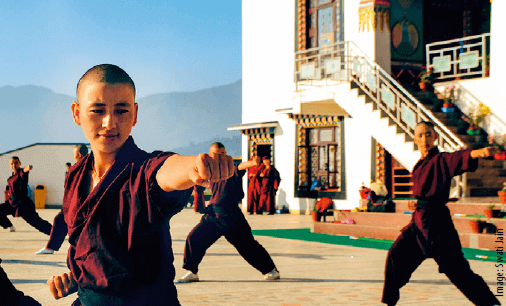 The Drukpa nuns are trailblazers,
fearlessly addressing gender equality,
the environment, and other issues
demanding compassionate social action.
In the popular press they’re known
as the “Kung Fu Nuns” because of their
rigorous daily practice of the martial
art, which they use to spark discussion
and raise awareness about the poor
treatment of women and girls in Nepal
and India. This past fall they made their
first trip to the United States to receive
the prestigious Game Changer Award
from the Asia Society, in addition to
attending discussions at the United Nations
about human trafficking in postearthquake
Nepal, all the while rocking
audiences with demonstrations of their
martial arts skills. ...
I’ve had encounters with underprivileged
nuns living in impoverished
conditions in the Buddhist Himalayas,
and in my experience they’re usually
shy and retiring. But these Jigmes
carry themselves completely differently.
They are fearless! They function
as an elite brigade of heroic models for
women’s empowerment and guardian
protectors of the environment.
Their ethos of fearlessness is exemplified
by their committed participation
in a transformational update
of the age-old tradition of pad yatra
(walking pilgrimage). The first “Eco
Pad Yatra” in 2009 involved hundreds
of Drukpa nuns, monks, and laypeople.
...
Read full text:
The Drukpa nuns are trailblazers,
fearlessly addressing gender equality,
the environment, and other issues
demanding compassionate social action.
In the popular press they’re known
as the “Kung Fu Nuns” because of their
rigorous daily practice of the martial
art, which they use to spark discussion
and raise awareness about the poor
treatment of women and girls in Nepal
and India. This past fall they made their
first trip to the United States to receive
the prestigious Game Changer Award
from the Asia Society, in addition to
attending discussions at the United Nations
about human trafficking in postearthquake
Nepal, all the while rocking
audiences with demonstrations of their
martial arts skills. ...
I’ve had encounters with underprivileged
nuns living in impoverished
conditions in the Buddhist Himalayas,
and in my experience they’re usually
shy and retiring. But these Jigmes
carry themselves completely differently.
They are fearless! They function
as an elite brigade of heroic models for
women’s empowerment and guardian
protectors of the environment.
Their ethos of fearlessness is exemplified
by their committed participation
in a transformational update
of the age-old tradition of pad yatra
(walking pilgrimage). The first “Eco
Pad Yatra” in 2009 involved hundreds
of Drukpa nuns, monks, and laypeople.
...
Read full text:
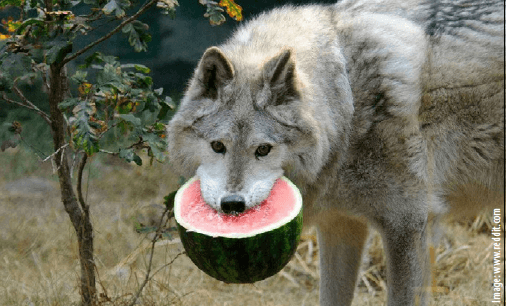 Some of North America’s big predators
—wolves, mountain lions,
bobcats, and the like— are now getting
nearly half their food from people.
It’s a big shift away from eating foods
found in nature and could put them
in conflict with one another, or lead to
more human-carnivore encounters on
running trails or suburban backyards.
A new study from researchers at the
University of Wisconsin-Madison and
the University of New Mexico used
hair, fur, and bone samples to identify
the diets of seven carnivore species
across the Upper Midwest, from the
outskirts of Albany, New York, to remote
Minnesota forestland. The scientists
used chemical tracers to show that the animals were relying on human
food sources either directly, such as by
raiding fields or trash bins, or indirectly
by preying on smaller animals that
do, such as mice, rabbits, or sometimes
even pets.
“These species are eating human
food,” says Philip Manlick. “In some
cases, up to half of their diets are coming
from humans. It might be garbage,
or corn residue, or house cats and
pets,” Manlick says. “This is bad news
for carnivores, because people don’t
want predators eating their pets —and,
generally speaking, people don’t like
carnivores in their backyard.” ...
Read full text
Some of North America’s big predators
—wolves, mountain lions,
bobcats, and the like— are now getting
nearly half their food from people.
It’s a big shift away from eating foods
found in nature and could put them
in conflict with one another, or lead to
more human-carnivore encounters on
running trails or suburban backyards.
A new study from researchers at the
University of Wisconsin-Madison and
the University of New Mexico used
hair, fur, and bone samples to identify
the diets of seven carnivore species
across the Upper Midwest, from the
outskirts of Albany, New York, to remote
Minnesota forestland. The scientists
used chemical tracers to show that the animals were relying on human
food sources either directly, such as by
raiding fields or trash bins, or indirectly
by preying on smaller animals that
do, such as mice, rabbits, or sometimes
even pets.
“These species are eating human
food,” says Philip Manlick. “In some
cases, up to half of their diets are coming
from humans. It might be garbage,
or corn residue, or house cats and
pets,” Manlick says. “This is bad news
for carnivores, because people don’t
want predators eating their pets —and,
generally speaking, people don’t like
carnivores in their backyard.” ...
Read full text

 Simply fill the tool with water and place it inside a
sealed container with your baked goods to extend their shelf life. www.thegrommet.com
Simply fill the tool with water and place it inside a
sealed container with your baked goods to extend their shelf life. www.thegrommet.com
 Made of sturdy yet
flexible food-grade
silicone, these measuring
cups pour liquid
precisely with no spills.
The design allows
you to form a spout
anywhere on the
flexible rim and the
silicone material grips
the counter to provide
traction and stability.
Set of 3.
www.thegrommet.comor
Made of sturdy yet
flexible food-grade
silicone, these measuring
cups pour liquid
precisely with no spills.
The design allows
you to form a spout
anywhere on the
flexible rim and the
silicone material grips
the counter to provide
traction and stability.
Set of 3.
www.thegrommet.comor
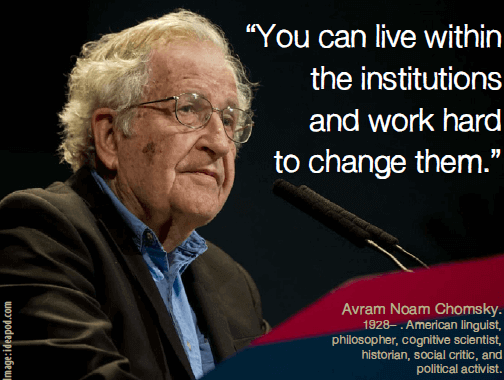 “You can live within
the institutions
and work hard
to change them.”
“You can live within
the institutions
and work hard
to change them.”
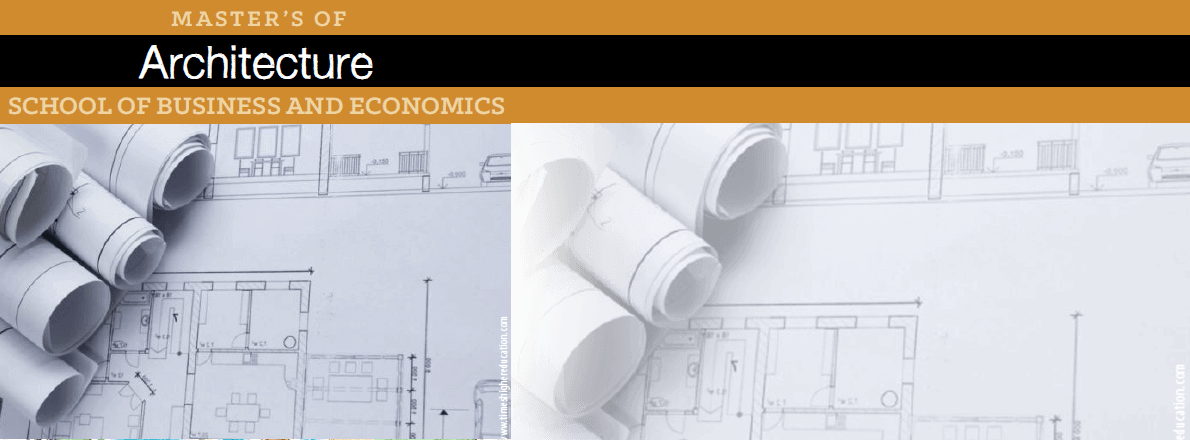 The Master of Architecture
program is offered online via
distance learning. After evaluating
both academic record and life experience,
AIU staff working in conjunction
with Faculty and Academic Advisors
will assist students in setting up a
custom-made program, designed on
an individual basis. This flexibility to
meet student needs is seldom found
in other distance learning programs.
Our online program does not require
all students to take the same subjects/
courses, use the same books, or
learning materials. Instead, the online
Master of Architecture curriculum is
designed individually by the student
and academic advisor. It specifically
addresses strengths and weaknesses
with respect to market opportunities
in the student’s major and intended
field of work.
The Master of Architecture
program is offered online via
distance learning. After evaluating
both academic record and life experience,
AIU staff working in conjunction
with Faculty and Academic Advisors
will assist students in setting up a
custom-made program, designed on
an individual basis. This flexibility to
meet student needs is seldom found
in other distance learning programs.
Our online program does not require
all students to take the same subjects/
courses, use the same books, or
learning materials. Instead, the online
Master of Architecture curriculum is
designed individually by the student
and academic advisor. It specifically
addresses strengths and weaknesses
with respect to market opportunities
in the student’s major and intended
field of work. Atlantic International University is accredited by the Accreditation Service for International
Schools, Colleges and Universities (ASIC). ASIC Accreditation is an internationally
renowned quality standard for colleges and universities. Visit ASIC’s Directory of Accredited
Colleges and Universities. ASIC is a member of CHEA International Quality Group
(CIQG) in the USA, an approved accreditation body by the Ministerial Department of the Home Office
in the UK, and is listed in the International Directory of the Council for Higher Education Accreditation
(CHEA). The University is based in the United States and was established by corporate charter in 1998.
Atlantic International University is accredited by the Accreditation Service for International
Schools, Colleges and Universities (ASIC). ASIC Accreditation is an internationally
renowned quality standard for colleges and universities. Visit ASIC’s Directory of Accredited
Colleges and Universities. ASIC is a member of CHEA International Quality Group
(CIQG) in the USA, an approved accreditation body by the Ministerial Department of the Home Office
in the UK, and is listed in the International Directory of the Council for Higher Education Accreditation
(CHEA). The University is based in the United States and was established by corporate charter in 1998.
 In some cases, accredited colleges
may not accept for transfer courses and degrees
completed at unaccredited colleges, and some
employers may require an accredited degree as
a basis for eligibility for employment. Potential
students should consider how the above may affect
their interests, AIU respects the unique rules and
regulations of each country and does not seek to
influence the respective authorities. In the event
that a prospective student wishes to carry out any
government review or process in regards to his
university degree, we recommend that the requirements
of such are explored in detail with the relevant
authorities by the prospective student as the
university does not intervene in such processes.
AIU students can be found in over 180 countries,
they actively participate and volunteer
in their communities as part of their academic
program and have allocated thousands of service
hours to diverse causes and initiatives. AIU
programs follow the standards commonly used by
colleges and universities in the United States with
regards to the following: academic program
structure, degree issued, transcript, and
other graduation documents.
AIU graduation documents can include
an apostille and authentication from the
US Department of State to facilitate their
use internationally.
In some cases, accredited colleges
may not accept for transfer courses and degrees
completed at unaccredited colleges, and some
employers may require an accredited degree as
a basis for eligibility for employment. Potential
students should consider how the above may affect
their interests, AIU respects the unique rules and
regulations of each country and does not seek to
influence the respective authorities. In the event
that a prospective student wishes to carry out any
government review or process in regards to his
university degree, we recommend that the requirements
of such are explored in detail with the relevant
authorities by the prospective student as the
university does not intervene in such processes.
AIU students can be found in over 180 countries,
they actively participate and volunteer
in their communities as part of their academic
program and have allocated thousands of service
hours to diverse causes and initiatives. AIU
programs follow the standards commonly used by
colleges and universities in the United States with
regards to the following: academic program
structure, degree issued, transcript, and
other graduation documents.
AIU graduation documents can include
an apostille and authentication from the
US Department of State to facilitate their
use internationally.
| Dr. Franklin Valcin President/Academic Dean |
Dr. José Mercado Chief Executive Officer Chairman of the Board of Trustees |
Ricardo González, PhD Provost |
| Dr. Ricardo Gonzalez Chief Operation Officer and MKT Director |
Linda Collazo Logistics Coordinator |
Dr. Silvia Restorff Academic Advisor |
| Dr. Miriam Garibaldi Viceprovost for Research |
Irina Ivashuk Alumni Association Coordinator |
Dr. Prakash Menon Academic Advisor |
| Dr. Ofelia Miller Director of AIU |
Clara Margalef Director of Special Projects of AIU |
Carlos Aponte Telecommunications Coordinator |
| Juan Pablo Moreno Director of Operations |
David Jung Corporate/Legal Counsel |
Dr. Nilani Ljunggren De Silva Academic Advisor |
| Paula Viera Director of Intelligence Systems |
Bruce Kim Advisor/Consultant |
Dr. Scott Wilson Academic Advisor |
| Felipe Gomez Design Director / IT Supervisor |
Thomas Kim Corporate/ Accounting Counsel |
Dr. Mohammad Shaidul Islam Academic Advisor |
| Daritza Ysla IT Coordinator |
Camila Correa Quality Assurance Coordinator |
Dr. Edgar Colon Academic Advisor |
| Nadeem Awan Chief Programming Officer |
Maricela Esparza Administrative Coordinator |
Deborah Rodriguez Academic Tutor Coordinator |
| Dr. Jack Rosenzweig Dean of Academic Affairs |
Chris Benjamin IT and Hosting Support |
Cyndy Dominguez Academic Tutor Coordinator |
| Dr. Edward Lambert Academic Director |
Mayra Bolivar Accounting Coordinator |
Kinmberly Diaz Admissions Support Tutor |
| Dr. Ariadna Romero Advisor Coordinator |
Roberto Aldrett Communications Coordinator |
Amalia Aldrett Admissions Coordinator |
| Nadia Gabaldon Academic Coordinator |
Giovanni Castillo IT Support |
Sandra Garcia Admissions Coordinator |
| Jhanzaib Awan Senior Programmer |
Jaime Rotlewicz Dean of Admissions |
Jose Neuhaus Admissions Support |
| Leonardo Salas Human Resource Manager |
Dr. Mario Rios Academic Advisor |
Junko Shimizu Admissions Coordinator |
| Benjamin Joseph IT and Technology Support |
Michael Phillips Registrar’s Office |
Veronica Amuz Admissions Coordinator |
| Rosie Perez Finance Coordinator |
Rene Cordon Admissions Support |
Alba Ochoa Admissions Coordinator |
| Chris Soto Admissions Counselor |
Jenis Garcia Admissions Counselor |
|
 The School of Business and Economics
allows aspiring and practicing
professionals, managers, and entrepreneurs
in the private and public sectors
to complete a self paced distance
learning degree program of the highest
academic standard.
The ultimate goal is to empower
learners and help them take advantage
of the enormous array of resources
from the world environment in order
to eliminate the current continuum of
poverty and limitations.
Degree programs are designed for
those students whose professional experience has been in business,
marketing, administration, economics,
finance and management.
The School of Business and Economics
allows aspiring and practicing
professionals, managers, and entrepreneurs
in the private and public sectors
to complete a self paced distance
learning degree program of the highest
academic standard.
The ultimate goal is to empower
learners and help them take advantage
of the enormous array of resources
from the world environment in order
to eliminate the current continuum of
poverty and limitations.
Degree programs are designed for
those students whose professional experience has been in business,
marketing, administration, economics,
finance and management.
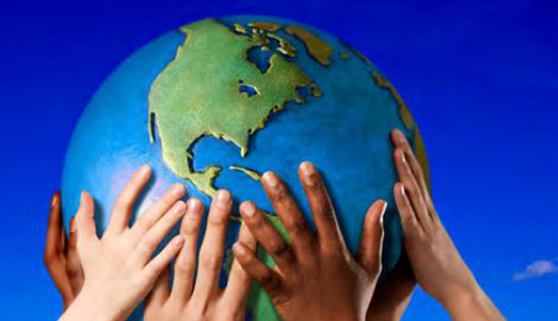 The School of Social and Human Studies
is focused on to the development of
studies which instill a core commitment
to building a society based on social and
economic justice and enhancing opportunities
for human well being.
The founding principles lie on the
basic right of education as outlined
in the Declaration of Human Rights.
We instill in our students a sense of
confidence and self reliance in their
ability to access the vast opportunities
available through information channels,
the world wide web, private, public,
nonprofit, and nongovernmental organizations in an ever expanding
global community.
Degree programs are aimed towards
those whose professional life has been
related to social and human behavior,
with the arts, or with cultural studies.
The School of Social and Human Studies
is focused on to the development of
studies which instill a core commitment
to building a society based on social and
economic justice and enhancing opportunities
for human well being.
The founding principles lie on the
basic right of education as outlined
in the Declaration of Human Rights.
We instill in our students a sense of
confidence and self reliance in their
ability to access the vast opportunities
available through information channels,
the world wide web, private, public,
nonprofit, and nongovernmental organizations in an ever expanding
global community.
Degree programs are aimed towards
those whose professional life has been
related to social and human behavior,
with the arts, or with cultural studies.
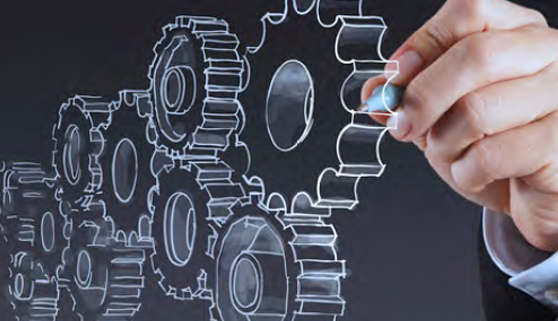 The School of Science and Engineering
seeks to provide dynamic, integrated,
and challenging degree programs
designed for those whose experience
is in industrial research, scientific production,
engineering and the general
sciences. Our system for research and
education will keep us apace with the
twenty-first century reach scientific
advance in an environmentally and
ecologically responsible manner to allow
for the sustainability of the human
population. We will foster among our
students a demand for ethical behavior,
an appreciation for diversity, an understanding
of scientific investigation, knowledge of design innovation, a
critical appreciation for the importance
of technology and technological change
for the advancement of humanity.
The School of Science and Engineering
seeks to provide dynamic, integrated,
and challenging degree programs
designed for those whose experience
is in industrial research, scientific production,
engineering and the general
sciences. Our system for research and
education will keep us apace with the
twenty-first century reach scientific
advance in an environmentally and
ecologically responsible manner to allow
for the sustainability of the human
population. We will foster among our
students a demand for ethical behavior,
an appreciation for diversity, an understanding
of scientific investigation, knowledge of design innovation, a
critical appreciation for the importance
of technology and technological change
for the advancement of humanity.
 With access to a global catalog created and maintained collectively by more than
9,000 participating institutions, AIU students have secured excellent research
tools for their study programs.
With access to a global catalog created and maintained collectively by more than
9,000 participating institutions, AIU students have secured excellent research
tools for their study programs.